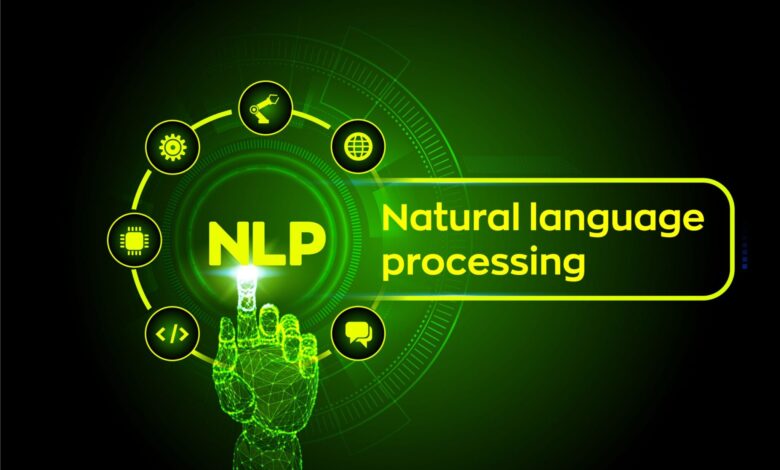
Natural Language Processing (NLP) Applications in IT
Natural Language Processing (NLP) has revolutionized the field of Information Technology (IT) by enabling machines to understand, interpret, and respond to human language. NLP sits at the intersection of computer science, artificial intelligence, and linguistics, empowering systems to process and analyze vast amounts of natural language data. As IT continues to evolve, the applications of NLP are becoming increasingly diverse and integral to various aspects of technology and business. This blog post delves into some of the most impactful NLP applications in IT, exploring how this technology is transforming the industry.
Introduction
The digital era has ushered in an explosion of data, much of which is unstructured and text-based. Traditional data processing techniques struggle to make sense of this vast amount of textual information. This is where NLP comes into play. By leveraging advanced algorithms and machine learning, NLP can decode complex human language, providing insights and enabling automation that was previously unimaginable. In the IT sector, NLP applications are not just enhancing existing processes but are also opening up new possibilities for innovation and efficiency. From chatbots and sentiment analysis to machine translation and information retrieval, NLP is at the forefront of technological advancement. Let’s explore these applications in detail.
1. Chatbots and Virtual Assistants
One of the most visible applications of NLP in IT is in the development of chatbots and virtual assistants. These tools use NLP to understand and respond to user queries in a human-like manner. For instance:
- Customer Support: Automated chatbots provide instant responses to common customer queries, significantly reducing the workload on human support teams and enhancing customer satisfaction.
- Personal Assistants: Virtual assistants like Siri, Alexa, and Google Assistant rely heavily on NLP to perform tasks, answer questions, and provide recommendations based on user input.
2. Sentiment Analysis
Sentiment analysis is a powerful NLP application that involves analyzing text data to determine the sentiment behind it, whether positive, negative, or neutral. This has profound implications in various areas, such as:
- Social Media Monitoring: Companies use sentiment analysis to gauge public opinion about their brand, products, or services by analyzing social media posts and comments.
- Market Research: By analyzing customer reviews and feedback, businesses can gain insights into consumer sentiment and preferences, guiding product development and marketing strategies.
3. Machine Translation
NLP has significantly advanced the field of machine translation, making it possible to translate text from one language to another with increasing accuracy. Key applications include:
- Global Communication: Machine translation tools like Google Translate help bridge language barriers, facilitating communication and collaboration across different languages and cultures.
- Content Localization: Businesses can use machine translation to localize content for different markets, ensuring that their message resonates with a global audience.
Also Check
4. Information Retrieval and Text Mining
NLP plays a crucial role in information retrieval and text mining, enabling systems to extract relevant information from large datasets. Applications include:
- Search Engines: NLP enhances the capabilities of search engines by understanding the context and intent behind user queries, providing more accurate and relevant search results.
- Knowledge Management: Organizations use text mining to sift through vast amounts of documents and data to extract valuable information, helping in decision-making and strategy development.
5. Document Summarization
Automatic summarization is an NLP technique used to create concise summaries of large documents. This is particularly useful in:
- News Aggregation: Summarization tools can provide brief overviews of news articles, allowing readers to quickly grasp the main points.
- Research and Academia: Researchers can use summarization to quickly review relevant literature, saving time and effort in their work.
6. Speech Recognition
Speech recognition is another critical application of NLP, converting spoken language into text. This technology underpins various IT solutions, including:
- Voice-Activated Systems: Devices like smart speakers and home automation systems rely on speech recognition to interact with users through voice commands.
- Transcription Services: Automated transcription tools convert spoken content from meetings, interviews, and lectures into written text, enhancing accessibility and record-keeping.
7. Predictive Text and Autocorrect
NLP is also behind the predictive text and autocorrect features commonly found in smartphones and text editing software. These applications enhance user experience by:
- Typing Assistance: Predictive text suggests the next word or phrase as users type, speeding up text entry and improving efficiency.
- Error Correction: Autocorrect identifies and corrects spelling and grammatical errors, helping users produce polished and accurate text.
Conclusion
Natural Language Processing is a transformative technology with far-reaching applications in the IT industry. By enabling machines to understand and interact with human language, NLP is enhancing customer experiences, streamlining operations, and driving innovation across various domains. As NLP technology continues to advance, its applications will become even more integrated into our daily lives, further bridging the gap between human communication and machine understanding. The future of IT is undoubtedly intertwined with the continued evolution of NLP, promising a world where technology can seamlessly interpret and respond to our linguistic needs.








